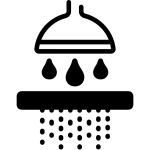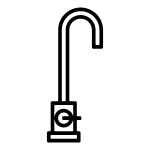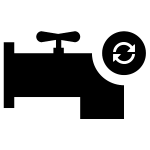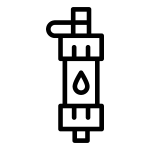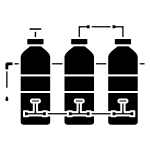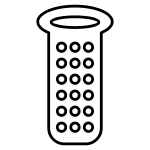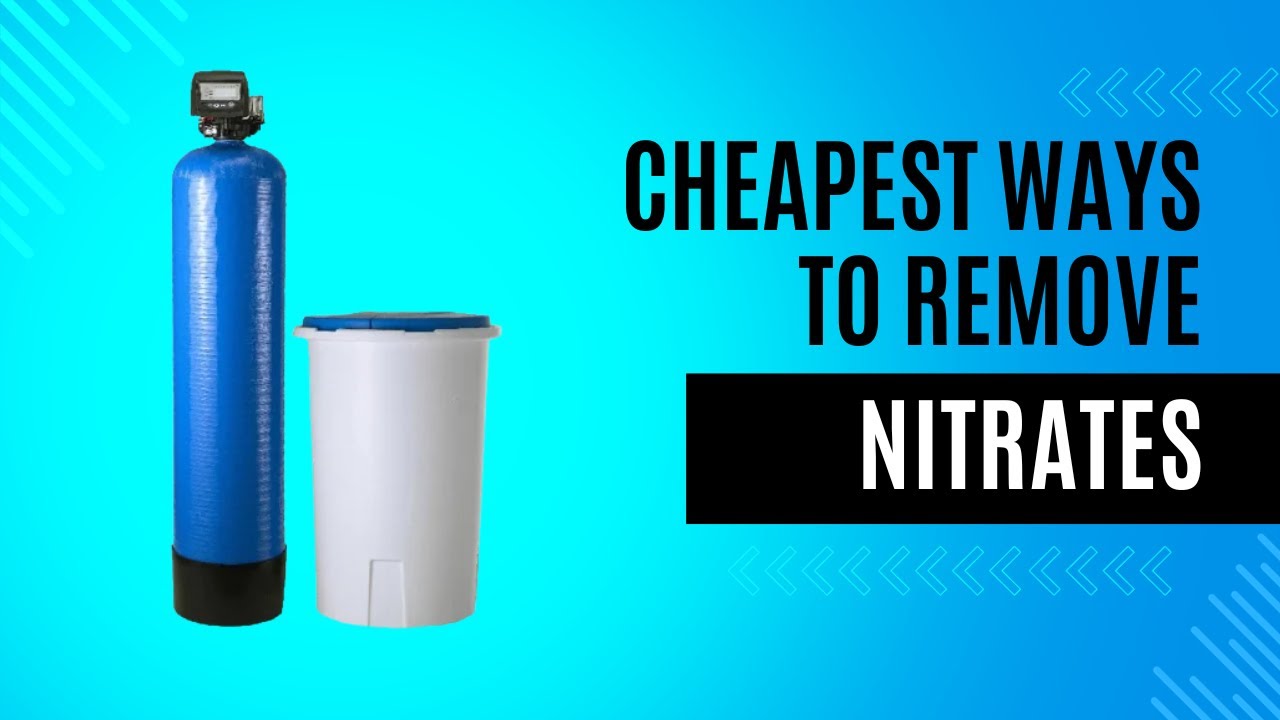Access to clean, safe drinking water is a basic necessity. However, many households face hidden dangers in their water supply — and one of the most common yet dangerous contaminants is nitrate. This chemical can sneak into your tap water through fertilizers, septic systems, and natural processes, posing serious health risks, especially to infants and pregnant women.
If you’ve ever wondered what water filter removes nitrates, you’re not alone. In this in-depth guide from Cuoll, your trusted home improvement and water safety partner, we’ll break down everything you need to know — from nitrate sources and dangers to the best water filtration systems that can effectively eliminate them.
What Are Nitrates and Why Should You Care?
Nitrates (NO₃⁻) are naturally occurring compounds found in soil, water, and air. They’re also common in synthetic fertilizers used in agriculture. When it rains, nitrates can seep into groundwater and make their way into your home’s water supply.
Health Risks of Nitrates in Drinking Water
The most serious concern with nitrate contamination is “blue baby syndrome” (methemoglobinemia), a potentially fatal condition that affects infants by reducing oxygen in the blood. Other risks include:
- Increased cancer risk
- Thyroid problems
- Reproductive issues
- High blood pressure
According to the Environmental Protection Agency (EPA), the maximum contaminant level (MCL) for nitrates in drinking water is 10 mg/L (ppm). Anything higher is considered unsafe.
How Do Nitrates Get Into Your Water?
Nitrate contamination typically comes from:
- Fertilizer runoff from farms
- Leaking septic tanks
- Animal waste
- Industrial waste
- Natural deposits in the soil
If you rely on well water, your risk is even higher since private wells are not regulated like municipal systems.
How to Know If You Have Nitrates in Your Water
1. Water Testing Kits
You can use a nitrate testing kit at home to get quick results. These kits usually involve a test strip that changes color when nitrates are present.
2. Laboratory Testing
For more accurate results, consider sending a sample of your water to a certified lab. This is especially important if you’re using well water or live in an agricultural area.
3. Municipal Water Reports
If you get water from a city supply, request a Consumer Confidence Report (CCR). This report shows contaminants detected in your water, including nitrates.
What Water Filter Removes Nitrates? Top Filtration Methods
Let’s get to the heart of the matter: what type of water filter can remove nitrates effectively?
1. Ion Exchange Filters (Anion Exchange)
These filters are specifically designed to remove negatively charged ions like nitrate. They work similarly to water softeners but use a different type of resin that swaps chloride for nitrate ions.
Pros:
- Highly effective at removing nitrates
- Easy to install under the sink or as a whole-house system
Cons:
- Requires regeneration with salt (sodium chloride)
- Adds some sodium to your water
Recommended for: Households with high nitrate levels who want targeted removal.
2. Reverse Osmosis (RO) Systems
Reverse osmosis is one of the most comprehensive water filtration technologies. It forces water through a semi-permeable membrane that blocks contaminants, including nitrates.
Pros:
- Removes up to 92% of nitrates
- Also filters out heavy metals, chlorine, and bacteria
- Great for drinking and cooking water
Cons:
- Wastes some water in the process
- Slower flow rate
- More expensive than other filters
Recommended for: Families who want safe, all-around clean drinking water.
3. Distillation Units
Water distillers boil water and collect the steam, leaving nitrates and other impurities behind.
Pros:
- Removes nearly all contaminants
- Very effective for nitrate removal
Cons:
- Slow process
- Requires electricity
- Not suitable for whole-house filtration
Recommended for: People with moderate nitrate levels looking for a reliable solution for drinking water.
4. Combination Systems
Some advanced water filter systems combine reverse osmosis + ion exchange or activated carbon + RO, offering enhanced performance.
Recommended for: Homes with multiple water quality concerns beyond just nitrates.
Filters That Don’t Remove Nitrates
Not all water filters can remove nitrates. Be cautious when choosing your system.
The following types are NOT effective for nitrate removal:
- Activated Carbon Filters (alone)
- Sediment Filters
- UV Purifiers
- Basic Pitcher Filters (unless specifically labeled)
Always check the NSF/ANSI certification for nitrate removal (look for NSF/ANSI 58 or 62).
Best Water Filters That Remove Nitrates (Top Picks from Cuoll)
At Cuoll, we provide tested and reliable water filtration products. Here are some top-rated options available on our website:
1. Cuoll Reverse Osmosis Water Filtration System
- Removes nitrates, fluoride, arsenic, chlorine, lead, and more
- 5-stage purification
- Easy under-sink installation
- Ideal for small to medium families
2. Cuoll Whole House Nitrate Removal System
- Ion-exchange resin for nitrate targeting
- Treats all water in your home
- Great for well water users
- Customizable capacity
3. Cuoll Countertop Distiller
- Perfect for clean drinking water
- Removes 99% of contaminants
- Stainless steel build
- Affordable and durable
Explore Our Water Filters – (internal link suggestion)
Installation Tips and Maintenance
- Pre-filtration: Use a sediment filter before your nitrate filter to extend its life.
- Replace filters regularly: Especially important in RO and ion exchange systems.
- Water pressure: Ensure your home’s water pressure is compatible with your filter system.
- Professional help: If unsure, hire a technician for installation and system optimization.
Additional Ways to Reduce Nitrate Exposure
- Drink bottled or filtered water if your supply is unsafe
- Avoid using nitrate-contaminated water for baby formula
- Test your water at least once a year
- Use organic fertilizers if you garden
Final Thoughts: Choose the Right Nitrate-Removing Filter
So, what water filter removes nitrates? The answer depends on your water quality, household needs, and budget. However, if you’re serious about safeguarding your health, we recommend:
- Reverse Osmosis for the kitchen
- Ion Exchange for whole-house treatment
- Distillation for personal use
At Cuoll, we’re here to help you create a safer, healthier home. Our extensive range of water filters, purifiers, and bathtubs is designed with your comfort and safety in mind.
Frequently Asked Questions (FAQ)
1. Do Brita filters remove nitrates?
No, Brita filters are not designed to remove nitrates. They primarily remove chlorine, taste, and odor.
2. Can boiling water remove nitrates?
No. Boiling water can actually increase nitrate concentration due to evaporation. Use a proper filtration system instead.
3. Is it safe to bathe in water with nitrates?
Yes, skin absorption of nitrates is minimal. However, avoid using nitrate-contaminated water for infants or for making formula.
4. How much does a nitrate water filter cost?
It varies:
- RO Systems: $150 – $500+
- Ion Exchange Units: $300 – $1000+
- Distillers: $100 – $300
Ready to Purify Your Water?
Your family deserves the best. Don’t wait until it’s too late. Browse our full collection of nitrate-removing water filters at Cuoll.com and take the first step toward a healthier home today.
🔹 Need help choosing a system? Contact our expert support team.
🔹 Get free shipping on select orders this month!


